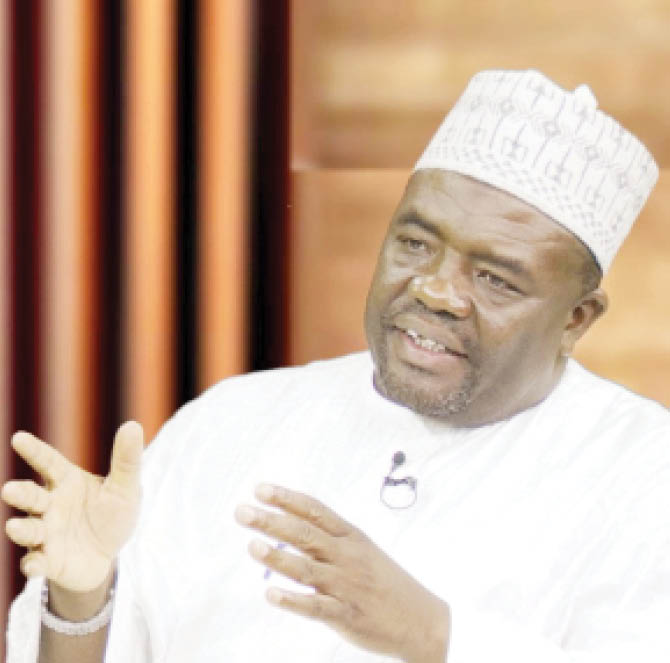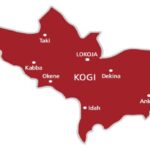Meet Alhaji Mohammed Abubakar Maifata, a former member of the House of Representatives from Kano State and the proprietor of Umza Farms Limited, producers of Umza Rice brands and the President of Rice Processors Association of Nigeria. Few days ago, the tycoon was a guest in the Trust TV 30 Minutes programme with Mannir Dan-Ali, where he explained how they generated 1.5 megawatt of electricity from the rice mill and the new investments in sugar refinery and aviation. He also spoke on how they have tripled their production line. Excerpts:
Let’s start with the rice; you have been at it for 12 years. What prompted you into rice because I knew you as a politician in the House of Representatives, then suddenly you appeared in rice milling?
When we decided to go into rice, we saw the opportunity because we all believe that importation should not continue. In the last 60 years, what Nigeria does is to import millions of tons of rice every day at the expense of our foreign exchange. So, if you look at 12 years back, you will see that the foreign exchange has started to have some turbulence. That is one aspect of the business perspective. The second one is the population growth. If you rely on importation, there is a limit to what you can import to feed over 200 million mouths in a country. You all know that rice is the most staple food in our houses today in Nigeria. So, we looked at it and said this is an opportunity, coupled with the fact that then government started to encourage people to go back to farm, and they picked rice as one of the crops they wanted people to start growing. These were the reasons why we said ‘okay, let us also join and go for rice’.
Regionalisation of 2023 polls recipe for anarchy – Peace Committee
I want to put African creatives, creators on global stage – Roye Okupe
It must have been an interesting experience given that within a short time of setting up the first mill, you also have a second line and I don’t know whether by now you even have a third line?
We have the third line which is bigger than the first and the second put together. We have almost 190,000 tons per annum milling lines. Now, we have a power plant that produces 1.5 megawatts of electricity using rice husk and also by December, we will commission our oil mill which will be producing oil from the rice bran.
So, there is a lot of backward integration—you’re producing power and also you will be producing oil
You see, rice is a commodity from which nothing is wasted. You use the husk, which is 20 per cent of the rice, to produce electricity. The rice bran, which comes after you brush and clean the rice has 20 per cent oil content more than soya beans, but people don’t know about it. This is a common process in India, so we are putting up a plant to extract oil from the rice bran. This is the whole chain now about rice. Later, we will also be producing silica from the ash. After you burn the rice husk, the ash will give you silica.
You mean the one for glass?
Yes, and also in the plastic industry, they all use silica. So, that is where we are going to enter in the next couple of years.
This 1.5 megawatt of electricity that you produce, do you use it all alone or are you selling it out?
No, we are going to use it all for our industries.
Which means you don’t have business with buying diesel or electricity from distribution companies?
Of course. Last month, what we spent on energy (NEPA and diesel combined) was over N120 million in one month. So, it is necessary that we start looking at some other ways to get power. The best thing is for us to produce power using the rice husk, which is cheaper, and an old technology. At the same time, the boiler will give us steam, so, it’s a big process but I think it’s worth doing.
But let me understand this better: is it what you’re already doing or what you are planning to do?
We just commissioned it last

week. We started generating the power just last week.
So, the distribution company can now take their power elsewhere?
Laughter….
Let’s go back to the rice because this year, there seems to be the big issue of flooding—of course rice is usually grown in flood plains. I recall during a visit to your factory sometimes ago, we saw up to 50 trailers waiting to offload paddy. You mentioned that most of the rice came from Taraba and we see that Taraba is affected by flooding. Would that in any way affect your source of paddy?
Of course, to some extent. If you recall, in 2012, there was a massive flood. Then after the flood, there was a big opportunity in the country. Before 2012, people thought rice cannot be produced in the dry season. They thought it can be produced only in wet season and also in FADAMA land but after the 2012 flood, then came a big opportunity, and there’s research that says we can also grow rice during the dry season and then it started to pick up. Last year, it reached a point where the wet and dry season productions were almost equivalent.
Let me come to the flood issue, there is flooding in almost 26 states of Nigeria, and it affected a lot of farm lands. Unfortunately, one of the biggest rice mills (Olam) that has 5,000 hectares in Nasarawa State was levelled. But the good story is that rice is being produced mostly this year in upland and upland rice were not much affected. That is the only saviour we have. The flood really touched our crops, and I hope the government can find a way to see how to mobilize the farmers to go back for the dry season farming as quickly as possible.
But what is the market currently telling you, are the prices showing some stability or do you see the price of paddy going up?
The price of paddy now is more expensive compared to last year. At the begining of every season, starting from October when people start to harvest, it normally comes down but this year, it’s going up instead of coming down.
So how are you going to cope with that challenge?
Well, we will wait and see when the harvest starts fully; this will give us more ideas on how it would go. If the harvest starts fully, then we can see the areas that were not affected that came up with good harvest, it will mitigate the flooded areas.
Also, we will like to appeal to the farmers and government to mobilise back to the farm immediately so that if they plant now, in three months, by January -February, we can have a new harvest to mitigate what we lost during the wet season.
Are you suggesting that consumers are not likely to see a spike in the prices of your products?
Yes, even though in recent months, due to inflation, foreign exchange issues and so many reasons, the price of rice has gone up. This is not unique to Nigeria. It is almost all over the world. So, it has gone up a little. I don’t see it going up more than what it is now.
Even with the flooding and all that have happened this year?
Yes, in as much as people go back to the farm immediately.
As a rice miller and the president of the association of rice processors, do you do backward integration in terms of encouraging or actually having your own group of farming cooperatives that produce rice for you?
O yes, we do. We just mentioned the Olam farm, which is part of our group. They have 5,000 hectares of land, unfortunately it was submerged by flood this year but before this year they were doing well in the farm, cropping two times and other people like Thiami has 10,000 hectares of land now in Bauchi. For us, we have thousands of outgrowers that we have supported in the last five to seven years. We have in Jigawa, and Kebbi states. So, I’m sure many of our colleagues also have their pockets of farms or outgrowers that they are supporting. This has helped the sector a lot.
If you can remember, about ten years ago, the quantity of paddy produced was nothing to write home about, the quality was also not so good, but today; there is a lot of transformation in the quality of paddy. Our farmers have understood how to grow paddy well like in other parts of the world. The seed has also gone through transformation and the land under cultivation has increased more than ten times. There is more paddy in the system even though the rice mills have increased but there is almost enough for everybody. Now, what we want to do is to have more so that it will bring the price down.
With all these transformations, why are we not seeing cheaper rice?
It’s because of the cost of the paddy; we have not reached 100 per cent self-sufficiency in paddy production, likewise the milling. But by the time we reach a level where the paddy is enough for the mills, then we will have surplus. Once we have surplus, the price will start to come down. For now, we are still climbing, so we have to bear this trouble but I’m sure by the time we reach the peak, by the time we are producing more than 10 to 15 million tons of paddy, then we’ll be okay. By that time, we will start to see decline in the cost of paddy and we will also start thinking of export.
Where are we now in terms of production, how many millions do you reckon we are doing?
You know we don’t have any formal statistics, but we are looking at around 6 to 8 million tons. That is where we are hovering but as I told you, a lot of investment is going on in the sector. People are now seeing opportunity in paddy production, and they are going back to rice. Some are now leaving maize to paddy, some from sorghum and millet to paddy because they can produce more paddy in low and highland because there are better seeds and in the next few years, Insha Allah, I will come back here and tell you that the price is coming down.
Do you, as processors, still import paddy?
No. There was never a time that paddy was being imported and I think there will never be a time paddy will be imported. If you import paddy, then the whole process is defeated.
But you argue that you have the mill to process and that instead of keeping all the jobs abroad, you bring some of it to Nigeria. And if you recall, there was a time that processors were clamouring for that because there wasn’t enough local production.
There was a time such an argument was put before government for consideration, but I think later, we decided that arguments should be kept aside so that we can concentrate. It would be slow but let’s do it locally. It is slow but we are succeeding.
There are so many rice mills coming up, and as the president of the processors, do you have a census? I’m not talking of the small-scale ones, but the big ones like the WATCOT in Argungu, Olam in Nasarawa?
If you’re talking of this category of mills, they are not more than 10. They are the big ones. But there are medium and smaller sized integrated mills, which we were trying to get the numbers last week. There are more than 100 definitely but the ones you mentioned like ours, Olam, WATCOT, Labana, Stallion and just last week, we have one that joined from Katsina owned by Alhaji Dahiru, are about ten. Then, you come to the medium and smaller sized ones, but they are all integrated rice mills.
Are they all in business because I know some medium or smaller ones that have had to close shop because of diesel cost and other reasons?
Definitely, that is why I told you that the price of rice has gone up. It’s not only the paddy. This time last year, we bought diesel at N200, N210 or N220 maximum, but today you get diesel for N850. That is four times the price last year. I don’t have to tell you how much foreign exchange – which is needed to import spare parts or pay expatriate staff, is today, not to talk of how to get it. The cost of electricity (NEPA) rose. So, the prices of these things have quadrupled, and is therefore affecting the cost of rice. If you go back to the paddy as well, the farmers that produce it look at the cost of fertiliser. How much was fertiliser two years ago? Maximum of N5,000 but now, you have to keep more than N20,000 to buy a bag of NPK or urea.
Big players like you with backward integration are always venturing into other areas. I read a report of your company going into sugar refining in Bauchi and there was a mention of $100 million. Where is that going to come from?
(Laughter)…maybe Daily Trust will help us out. Yes, we are planning to start a sugar plantation as well as sugar refinery in Bauchi. That is a project that we hope will see the light of day maybe in three years. As you know, you have to start the plantation which will take around three years for the sugarcane to mature and at the same time put up the mill. The mill has three parts – one, the sugar refinery, then ethanol plant and a power plant that will provide about 32 megawatts of electricity.
Is the power to be derived from the sugar refining process?
Yes. You know, if you squeeze the sugarcane and remove the juice, the by-product can be used to produce electricity. There is nothing wasted, just like the rice. It is a big project indeed and we hope to see how we can challenge ourselves to make sure it sees the light of day.
Should I say it’s coming from the profit from rice and going into sugar again, or is it a bank facility?
It’s profit from rice, aviation and some bank facilities.
Yes, you have spoken about aviation; it’s a big jump from rice processing to aviation. This is a sector that has so many casualties. Even recently, I saw a report in Daily Trust mentioning 62 companies that have gone under. Why are you going into aviation?
You see, what brought us into rice is the same thing that will bring us into aviation. As a business man, in whatever you do, you look at opportunities on the table. You don’t have to look at who has succeeded or who has failed because there may have been different reasons for those who have succeeded and those who have failed, but focus on the opportunity on the table, then look at the possibility of taking that opportunity and that is what we do.

 Join Daily Trust WhatsApp Community For Quick Access To News and Happenings Around You.
Join Daily Trust WhatsApp Community For Quick Access To News and Happenings Around You.


